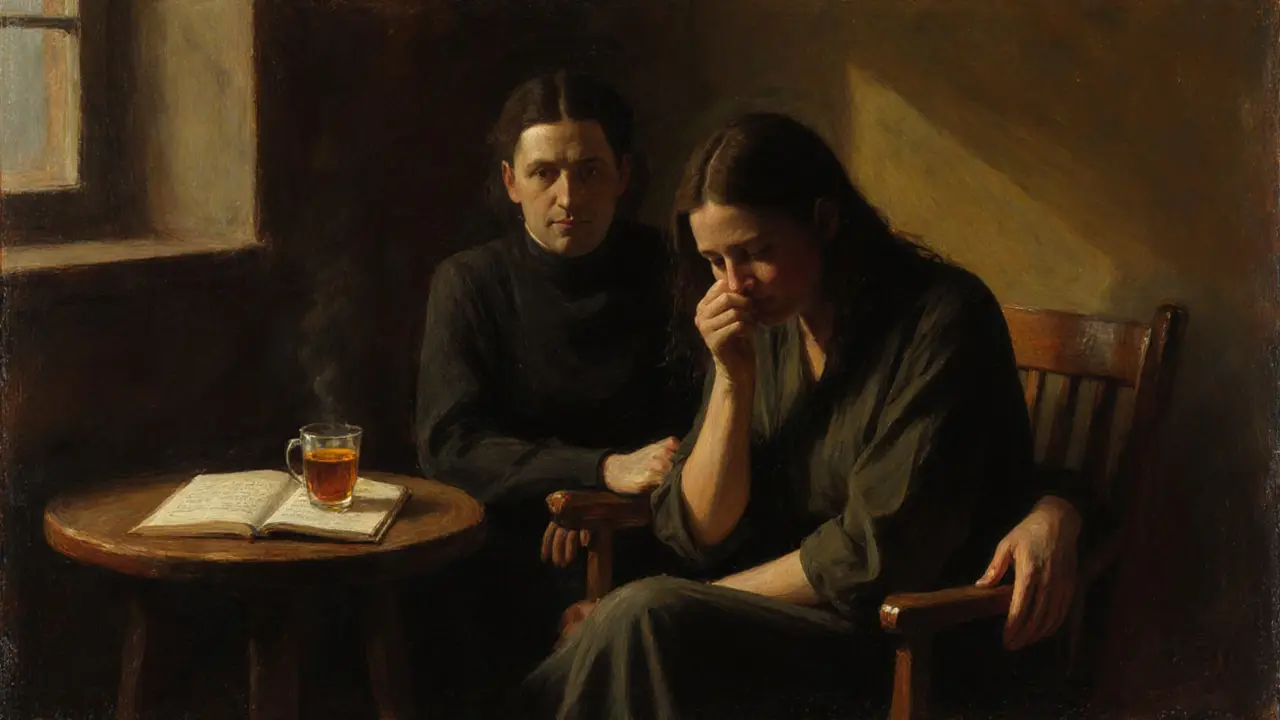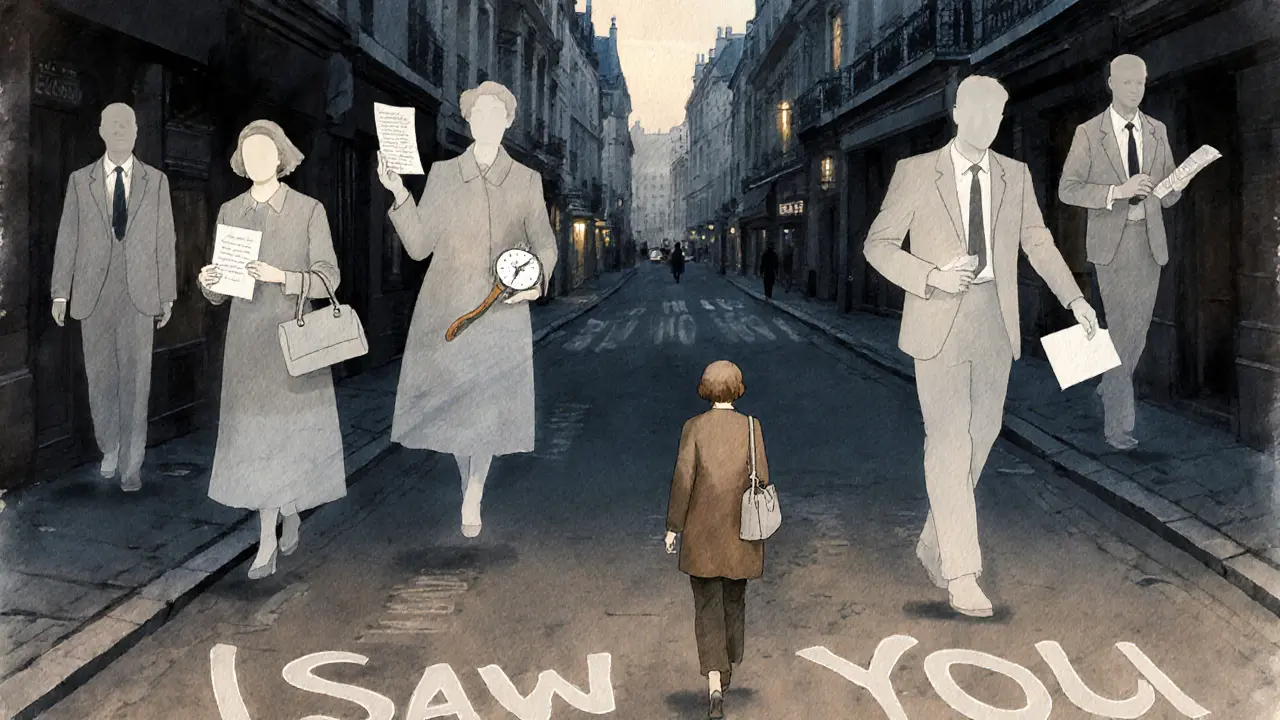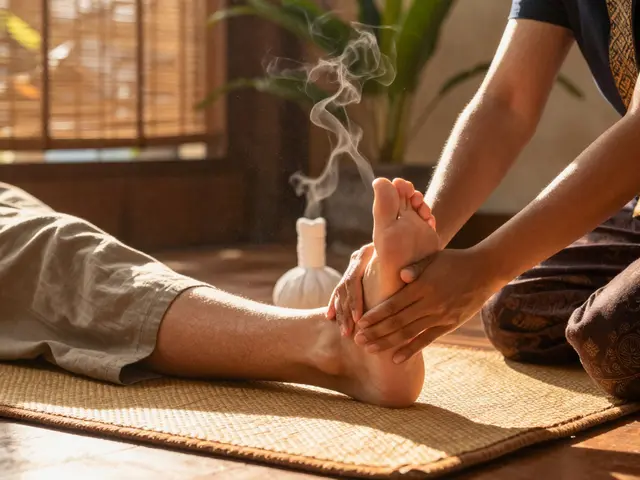The challenges and rewards of working as an escort in Paris

Working as an escort in Paris isn’t what you see in movies. There’s no glamorous red carpet, no luxury cars waiting at every door. It’s a job that demands emotional strength, sharp boundaries, and a deep understanding of human connection-often in silence. People assume it’s about sex, but most clients aren’t looking for that. They’re looking for someone to listen, to be present, to not judge them for being lonely, tired, or scared. And that’s the real work.
What the job actually looks like
Most escorts in Paris don’t work out of high-end apartments with chandeliers. They work from quiet studios in the 15th or 13th arrondissement, places you’d walk past without noticing. The schedule is irregular. One day you’re with a businessman from Tokyo who talks about his daughter’s college applications. The next, you’re with a retired professor who just wants someone to read poetry aloud while he sips tea. The money can be good-€150 to €400 per hour, depending on experience and location-but it’s not steady. Some weeks you book five clients. Other weeks, you’re scrolling through messaging apps, wondering if anyone will reply.
You learn quickly that appearance matters less than presence. A client once told me, "You didn’t wear makeup, but you looked like you actually saw me." That stayed with me. It’s not about being perfect. It’s about being real. You learn to read body language before words are spoken. You notice when someone’s hands are shaking, when they avoid eye contact, when they’re trying too hard to sound confident. And you adjust. You don’t fix them. You just let them be.
The hidden costs
The stigma is real. Even in a city known for its openness, being an escort means you don’t tell your family. You don’t post on social media. You use pseudonyms. You change your phone number when things get too noisy. Some friends drift away. One woman I knew lost her sister after her sister found out. "I thought you were a model," her sister said. "Now I don’t know who you are."
You also carry the weight of others’ pain. A client once cried for 45 minutes straight, not because he was lonely, but because he’d just lost his wife to cancer and no one else in his life knew how to talk to him anymore. You don’t give advice. You don’t try to fix it. You just sit there. And then you go home and sit alone in your apartment, wondering why it hurts so much to hold space for someone else’s grief.
Legal risks are always there. France doesn’t criminalize selling sex, but soliciting in public, operating a brothel, or advertising services is illegal. Many escorts avoid online platforms now, fearing police raids or scams. They rely on word-of-mouth or trusted networks. One escort I spoke with said she’s been visited by police three times in five years-not for prostitution, but for "public disorder" after a client argued with her in the street. The officers never charged her. But they made her feel like a criminal.
The unexpected rewards
There’s a quiet pride in this work that outsiders rarely see. You become one of the few people someone trusts enough to be vulnerable with. You hear stories no one else gets to hear. A French diplomat told me about his secret passion for painting. A young man from Algeria confessed he’d never told anyone he was gay. A widow brought her husband’s old watch and asked if I’d wear it for an hour. I did. She cried. I didn’t say a word.
You learn about yourself too. You learn how to say no without guilt. You learn how to protect your energy. You learn that money doesn’t heal loneliness-but human connection, even brief, can help. One client gave me a book of French poetry. Inside, he wrote: "You made me feel human again." I still have it.
Some escorts start their own businesses-therapy coaching, writing memoirs, offering emotional support workshops. One woman I know runs a small collective in Montmartre for former escorts who want to teach others how to set boundaries, manage finances, and transition out of the work. They don’t call themselves victims. They call themselves survivors.

Who does this work-and why?
There’s no single type of person who becomes an escort in Paris. Some are students paying for tuition. Others are single mothers supporting their kids. A few are retired professionals who miss the structure of work. One woman I met had been a lawyer in London before moving to Paris after her divorce. She said, "I miss arguing cases. But now I argue for people’s dignity instead."
Most aren’t there because they want to be. They’re there because the alternatives-low-wage jobs, unstable housing, no healthcare-were worse. One escort told me she chose this over working two part-time jobs that didn’t pay enough to keep the lights on. "At least here, I control my time. I choose who I see. And I get paid for being me."
There’s also a growing number of people who see this as a form of labor. They’re organizing. They’re demanding better protections. They’re pushing for recognition-not as criminals or victims, but as workers. A group called Les Travailleuses du Sexe is a Paris-based collective of sex workers advocating for decriminalization, safe working conditions, and access to healthcare has been holding monthly meetings since 2023. They’ve helped over 200 women access legal advice, mental health support, and housing aid.
What no one tells you
It’s not about being sexy. It’s about being safe. You carry a panic button. You check in with a friend before every appointment. You never go to a client’s home unless you’ve met them before. You learn to spot the red flags: too many questions about your personal life, insistence on meeting in isolated places, refusal to pay upfront.
You also learn to separate your worth from the work. One client asked me, "Do you ever feel used?" I said, "Only if I let myself believe I’m not valuable." That’s the mindset that keeps you going. You’re not selling your body. You’re selling your time, your attention, your calm. And that’s worth something.

Is it worth it?
Some leave after a year. Others stay for a decade. I’ve seen people who started as escorts end up opening cafés, writing novels, becoming counselors. The job doesn’t define them. It just helped them survive long enough to become something else.
If you’re thinking about this work, here’s what you need to know: It’s not glamorous. It’s not easy. But it can be deeply human. You’ll carry scars. You’ll also carry stories no one else gets to hear. And if you can hold both-without breaking-you might just find a kind of strength you didn’t know you had.
Is it legal to work as an escort in Paris?
Yes, selling sexual services is not illegal in France. However, advertising, soliciting in public, and running a brothel are. Most escorts avoid online ads and work through private networks to stay under the radar. Police don’t arrest sex workers-but they can still harass or question them under vague "public order" laws.
How much do escorts in Paris actually earn?
Earnings vary widely. New escorts typically charge €100-€200 per hour. Experienced ones with strong reputations can charge €300-€500. Some top-tier workers make €10,000+ per month, but that’s rare. Most earn between €1,500 and €4,000 monthly, depending on how many clients they see and how consistent their bookings are.
Do escorts in Paris have access to healthcare?
Yes, but it’s complicated. Anyone living in France legally can access public healthcare, but many escorts are undocumented or avoid registering for fear of exposure. Organizations like Les Travailleuses du Sexe help connect workers to free or low-cost medical and mental health services. Regular STI testing is common among those who take safety seriously.
Are there risks of violence or exploitation?
Yes. While most clients are respectful, there are predators who target sex workers. Escorts minimize risk by screening clients, never meeting alone in unfamiliar places, and always having a safety check-in system. Many use encrypted apps to share location details with trusted contacts. Violence is not common-but it’s a real threat, and preparation is essential.
Can you transition out of escort work?
Absolutely. Many former escorts go on to become therapists, writers, entrepreneurs, or advocates. The skills they develop-empathy, emotional regulation, communication, boundary-setting-are highly transferable. Groups like Les Travailleuses du Sexe offer career coaching and financial planning workshops to help with the transition.
Final thoughts
This isn’t a lifestyle choice for most. It’s a survival strategy. But it’s also a quiet act of resistance-against loneliness, against invisibility, against the idea that some people’s time isn’t worth paying for. The women and men who do this work aren’t asking for pity. They’re asking to be seen. And sometimes, that’s the most valuable thing of all.





